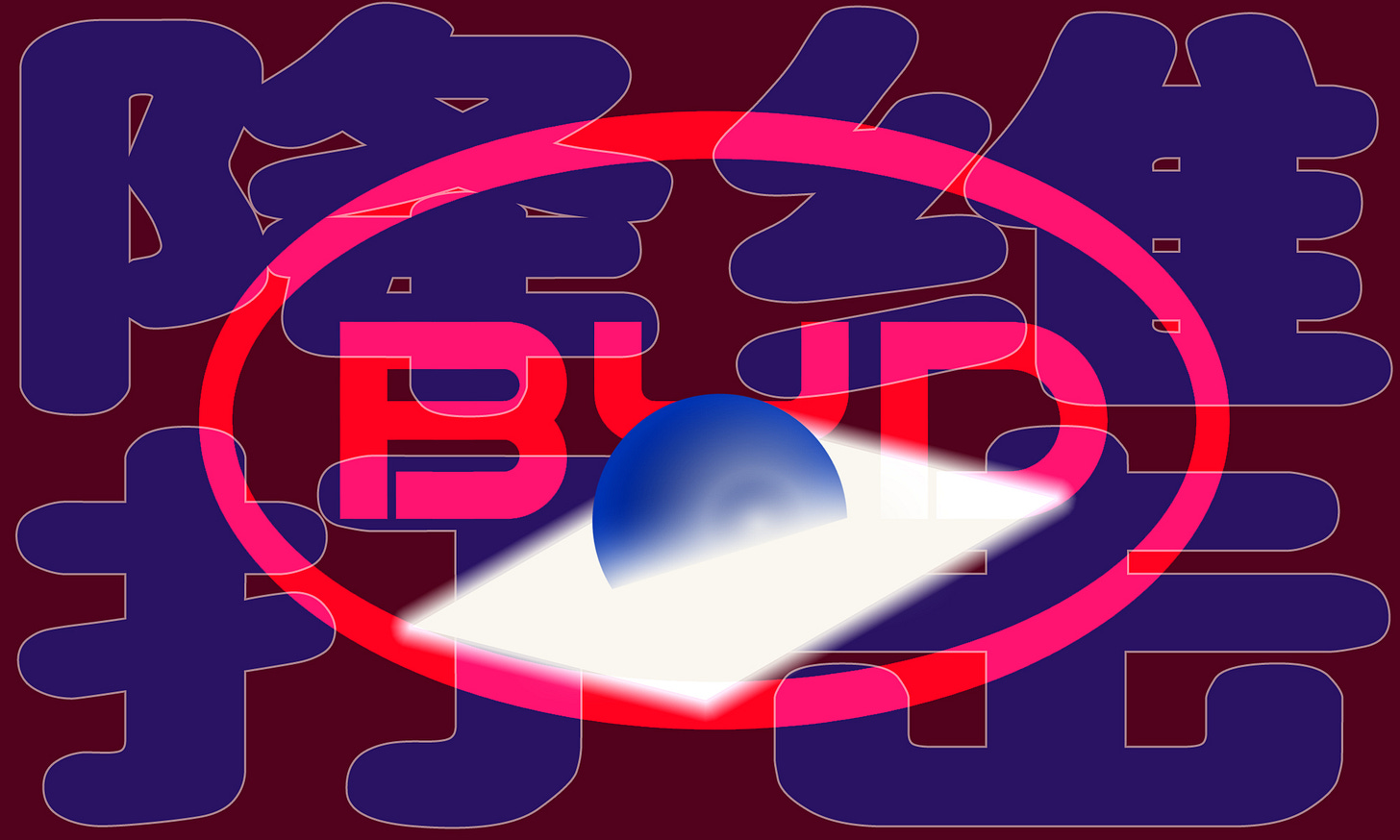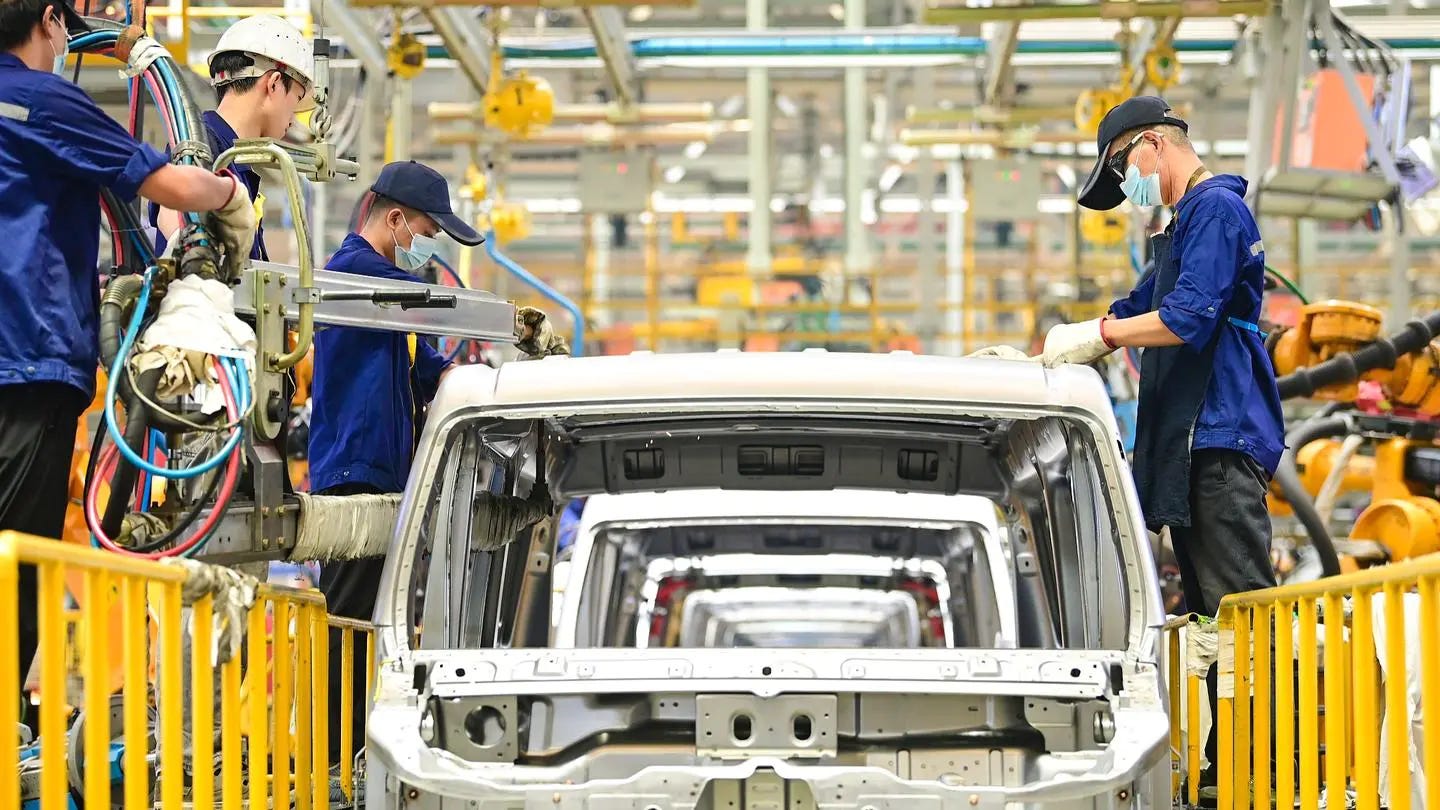Welcome to RealTime Mandarin—a multimedia resource to immerse you in the latest Chinese language trends, inspire you to practice and improve your Mandarin every week, and empower you to communicate with confidence.
Subscribe now to get the next issue straight to your inbox!
A leaked letter from Chinese automaker, BYD, is making waves on the Chinese internet.
In the letter dated 27 November, the company asks its suppliers to reduce prices by 10% starting 1 January, 2025.
On the same day the General Manager of BYD's brand and public relations department, Lǐ Yúnfēi 李云飞, posted on Weibo:
"Annual price negotiations with suppliers are standard practice in the automotive industry.
Based on bulk procurement, we propose cost reduction targets to suppliers, but this is not mandatory; we aim to reach a mutual agreement after negotiation."
“与供应商的年度议价,是汽车行业的惯例。我们基于规模化大量采购,对供应商提出降价目标,非强制要求,大家可协商推进。” [2]
It is standard practice (惯例 in Chinese) for companies like BYD to try and cuts costs every year. In recent years, the industry norm has been around 3-5% annually.
But BYD’s much more aggressive targets are a consequence of its dominant position. BYD sold 3.25 million cars in the first 10 months of 2024, and is projected to reach 4 million by the end of the year (the total output of EVs this year is set to exceed 10 million).
This gives the company the leverage to pressure its suppliers to cut prices further.
"This model of relentless cost-cutting has driven domestic suppliers into a vicious cycle of either being overwhelmed by competition or starved to death due to slim margins."
这种层层压榨的模式,导致国内供应商陷入要么卷死,要么饿死的恶性循环。 [5]
Known for its vertically integrated supply chain, BYD manufactures most components itself, relying on external suppliers for only 20-30% of its needs.
Its aggressive cost-cutting measures signal mounting pressure across the entire supply chain as Chinese brands vie to remain competitive.
This story has sparked widespread discussion in the Chinese media and on social media, with several key phrases emerging that capture the ripple effects of BYD’s cost-cutting moves.
These phrases not only highlight the economic realities and broader social trends unfolding in China, but also reflect the unique linguistic lens through which these challenges are understood and debated.
And this newsletter is all about linguistic trends and how they reflect what’s really going on in China!
There are four phrases which stand out in discussions about BYD’s cost cutting measures and what they mean.
1. "Involuted" competition (内卷)
Many suppliers already operate on thin margins, making further price cuts almost impossible. An executive from a major supplier to automotive brands reveals that many products are now sold below cost, exemplifying the phenomenon of "involuted" (内卷) pricing.
"The automakers want to squeeze 10 yuan from us, we have no choice but to pass the pressure down to our own suppliers and find ways to cut costs from them.
It's a hierarchical squeeze, one level pressing down on the next."
“他们(车企)要在我们身上抠 10 块钱下来,那我们只能去压我们下面的供应商,从他们身上想办法,只能一级压一级”。[2]
Involution, or “destructive competition”, is prevalent across many industries in China.
2. “Overwhelming advantage” (降维打击)
Automakers are leveraging their purchasing power to replace traditional suppliers with new entrants from other industries, driving prices even lower.
For instance, it is reported that automakers such as BYD have turned to advanced equipment manufacturers—specialists in high-tech products—to mass-produce low-tech components at significantly reduced costs through higher efficiencies and automation.
This “overwhelming advantage” (降维打击) poses a threat to incumbent suppliers, as one industry insider notes:
"With highly automated production, their product costs almost half of ours, which is essentially an overwhelming advantage against us.
We simply cannot compete on price. This line of business is declining rapidly, with negative revenue growth this year."
他们自动化程度更高,产品成本几乎是我们的一半,对我们是降维打击。我们根本报不出价来,这块业务下滑很快,今年营业额都是负增长。
In some cases, reports in China suggest that automotive brands also engage low-tech consumer product manufacturers to make even cheaper components. However, these alternatives can fail to meet automotive standards.
In other instances, such companies are invited to quote purely to disrupt the bidding process, pressuring established suppliers to slash their prices further.
This “overwhelming advantage” mirrors the disruption that we saw earlier this year when Robotaxis were being trialed on the streets of Wuhan—a stark reminder of the relentless pace of competition and innovation.
3. "Shameless" discounting (耍无赖)
Another tactic used by some automakers is simply refusing to pay suppliers in full.
A common scenario is an automaker ordering 1,000 parts but, upon delivery, only paying for 900 units—effectively imposing a unilateral 10% discount on the total price.
One supplier said helplessly:
"It's shameless.
They're blatantly shortchanging us. I've been in the industry for nearly a decade, and I've never encountered something like this before," the supplier said helplessly.”
“耍无赖了,明摆着少给你。我入行也快 10 年了,这种情况在之前根本没遇到过”,这位供应商无奈地说。[2]
This practice, often termed "shameless" discounting (耍无赖), underscores the stark power imbalance within the supply chain. Many suppliers are left with little choice but to accept these terms, even when it means selling at a loss, just to maintain critical business relationships.
This dynamic mirrors challenges seen in China’s solar industry, where cost-cutting pressures have similarly forced suppliers to sell products at a loss in China, or seek new markets overseas.
4. "Workhorse" employees (牛马)
The pressure on suppliers to cut costs has inevitably been passed down to their employees, many of whom now describe themselves as low-value "workhorses" (牛马).
Workers face reduced wages, the elimination of overtime, unstable working conditions, and job losses as manufacturers increasingly rely on cheaper or temporary labour. Reports show a 35% rise in flexible job roles in the industry since 2019, reflecting the growing shift towards cost-saving measures.
One factory worker explains:
"If the market doesn’t improve soon, factories may have to close down, and the workhorse employees will be the most affected.
Workers are actually the weakest link in the manufacturing sector, so they are most likely the first ones to be crushed by the accumulated pressures in the industry."
如果行情迟迟不好转,工厂可能垮掉,影响最大的肯定是工厂的牛马。员工其实是制造业链条上最薄弱的环节,制造业积蓄的层层压力可能最先在用工环节迸发出来。
Workhorse is a metaphor for employees feeling abused and undervalued. It has become increasingly common across various sectors this year—from overworked doctors to under-appreciated cafe chain workers.
What next?
Market forces are driving companies like BYD and its competitors to aggressively cut costs.
In a desperate fight for survival in an industry with profit margins as low as 5%, these savings inevitably get passed down the supply chain: to smaller suppliers and their employees.
This is a raw form of capitalism.
But at what cost?
That’s what we are exploring this week!
🎧 Podcast Preview: This week’s Member Podcast takes a deep dive into the nuances and distinctions between the pejorative terms which all translate as “shameless”: 耍无赖 (shuǎ wú lài), 无底线 (wú dǐ xiàn), 无下限 (wú xià xiàn), and 图便宜 (tú pián yí). We explore their meanings, usage, and the negative connotations they carry, as well as how to use them effectively in context. Tune in at the 8-minute mark for practical tips and insights you can start using right away!
Favourite Five
1. 反水 fǎn shuǐ
to turn against; to defect
供应商“反水”,不过是已经持续两年的车企价格战的缩影 - The suppliers "turning against" BYD is merely a reflection of the EV price war that has been going on for two years. [1]
2. 价格战 jià gé zhàn
price war
车企供应商、经销商也被裹挟进这场残酷的价格战里 - Suppliers and dealers have also been dragged into this brutal price war. [1]
Related:
迎战 yíng zhàn - face a challenge; engage in battle
3. 耍无赖 shuǎ wú lài
act shamelessly or resort to rogue behavior
车企对他们是直接耍起了无赖 - The automakers are acting in a blatantly shameless way (towards suppliers). [2]
Related:
耍赖 shuǎ lài - act in a dishonest or shameless manner
无耻 wú chǐ - shameless
4. 降维打击 jiàng wéi dǎ jī
leveraging an overwhelming advantage
产品成本几乎是我们的一半,对我们是降维打击 - Their product costs almost half of ours, which is essentially an overwhelming advantage against us. [2]
More: Read more about this phrase in tomorrow's Sinica Phrase of the Week.
5. 死路一条 sǐ lù yì tiáo
dead end; cul-de-sac
当车企敢于将自身的压力传递给供应商时,供应商也卷价格只会是“死路一条” - When automakers pass their pressure to suppliers and suppliers also engage in a price war, then it will only lead to a dead end. [5]
Consuming the conversation
Useful words
6. 降本 jiàng běn
reduce costs
但这两年价格战持续,车企也会提出更高的降本要求 - Automakers want to reduce costs even further as the price war continues after two years. [1]
Related:
降本增效 jiàng běn zēng xiào - reduce costs and increase efficiency
薄利多销 bó lì duō xiāo - small profits high turnover
7. 洗牌 xǐ pái
reshuffling; re-organisation (of an industry or market)
价格战难以停歇,产业链上下游还将持续洗牌 - With ongoing price war, the entire supply chain from upstream to downstream will continue to undergo reshuffling. [1]
Related:
换血 huàn xiě - replace key personnel or resources
8. 淘汰 táo tài
eliminate; phase out
比亚迪就提出要进一步淘汰缺乏竞争力的供应商 - BYD has proposed to further eliminate uncompetitive suppliers. [1]
Related:
淘汰赛 táo tài sài - elimination round; survival of the fittest
大决战 dà jué zhàn - final showdown; decisive battle
9. 血腥 xuè xīng
brutal; bloody
行业比较血腥的竞争起码会持续到2026、2027年,未来十年中国汽车主流品牌或只剩7家 - The brutal competition in the industry will likely last until 2026 or 2027, with only seven major Chinese car brands survived in the next decade. [1]
Related:
残酷 cán kù - cruel; harsh
内卷 nèi juǎn - destructive competition
10. 诉苦 sù kǔ
complain; vent grievances
更有供应商诉苦,车企对他们是直接耍起了无赖,明明吃了十碗粉,却只付你九碗的钱 - Some suppliers have complained that automakers acted in a blatantly shameless way, whereas they had ten bowls of noodles but only paid for nine. [2]
Related:
叫苦 jiào kǔ - complain bitterly
苦果 kǔ guǒ - bitter fruit; unpleasant consequences
11. 压榨 yā zhà
squeeze; exploit
现在实际上最直观的就是压榨供应商,而不是真的从技术上降成本 - Instead of reducing costs through technology, their usual trick is to squeeze suppliers. [2]
12. 挣扎 zhēng zhá
struggle
自主品牌已经在 40% 上下挣扎了十几年 - Independent brands have struggled around the 40% mark for over a decade. [2]
Related:
博弈 bó yì - rivalry or negotiation between opposing forces
死撑 sǐ chēng - hold on stubbornly; to persevere against odds
13. 吞没 tūn mò
swallow up; devour















